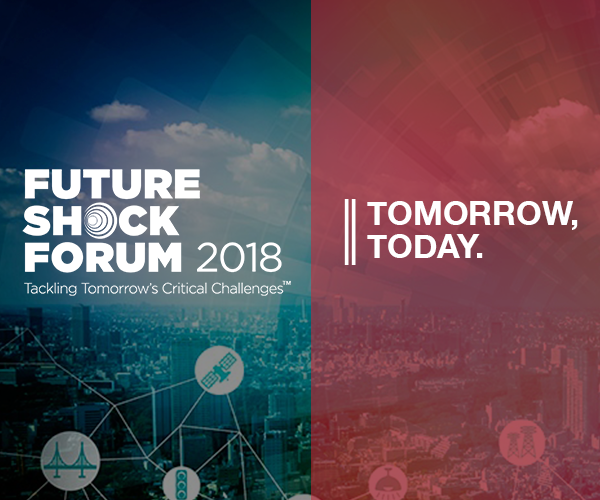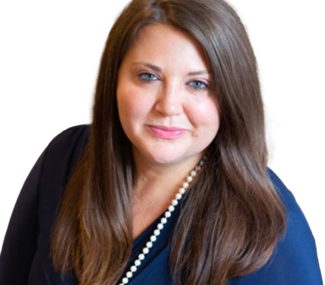The World is Shifting: Converge and Understand How it Impacts You

“You’ve got to think about big things while you’re doing small things, so that all the small things go in the right direction.”
― Alvin Toffler
In 1970, Alvin Toffler published Future Shock, and introduced a term that has come to define the transformation of industries, markets, businesses, governments, and societies, caused by rapid and often unexpected ‘shocks.’ These deep disruptions shape and reshape business, value generation, human capital, and more – and are happening fast and widespread, impacting societies, businesses, industries, and governments in varying degrees.
Too often, these shocks can seem fast, unexpected, and urgent. For the leaders striving to mitigate and manage the disruptions, the endeavor can seem like a game of whack-a-mole – putting otherwise strategic thinkers into more of a reactionary position than a future-focused one. Yet, every piece of evidence we have says that building and sustaining the resilience of the organization demands taking the time to – in Alvin Toffler’s words – “think about the big things.”
Alvin wrote Future Shock as a way to help people learn how to imagine different scenarios well in advance of their occurrence. He asserted that understanding is the fundamental step in planning for and adapting to the future. He and his wife and collaborator, Heidi, would gather other great thinkers from across a multitude of other industries and areas of expertise to gather around the kitchen table of their California home. They would take the time to ask the hard questions and look at the future through the lenses of future shocks. The Tofflers would read all kinds of books, newspapers, and magazines, clipping snippets from each. As they brought all these insights together, they would postulate about possibilities and how best to position for what was to come.
Today, more than 40 years later, Future Shock ForumSM (FSF) is the flagship Toffler Associates event. It reflects the spirit and power of intimate gatherings of curious and accomplished friends and colleagues coming together to share thoughts about building agile and innovative organizations in the complex global economy. It’s a rare opportunity for leaders, innovators, and thinkers from the worlds of business, public service, and academia to come together to explore and debate Future Shocks™. As the program director for FSF2018, I see that these gatherings and conversations are just as (if not more) critical as ever.
With change coming from every direction, we need to stop for a moment to stand in the future. Looking forward and then at the current state of our organizations, we can challenge ideas about economic and societal patterns and the different future scenarios we imagine and expect given the leadership and societal challenges posed by today’s globalized, hyper-connected, and speed-driven world.
For more than a year, I’ve uttered the phrase Future Shocks, considering what they are and why they matter so much to the current and future state of our society, country, economy, infrastructure, corporations, and humanity. I’ve concluded that it’s because these events disrupt, disorient, and reshape the futures of work, society, security, and innovation. As we approach the start of FSF2018, I have concluded this – the Future Shocks shaping our near and distant future bring risk and opportunity. We can prepare for both.
The 4 Future Drivers
Not every organization and stakeholders will experience the four drivers we’ve identified in the same way. While the relationships between the drivers are unique to each organization or society, one thing is certain across them all – they all have an impact across the world, leading to Future Shock.
From biodigital convergence and geopolitical powershifts, to infrastructure adaptation and societal collision, these shifts create considerable uncertainty and opportunity for today’s leaders:
- Societal Collisions: Points of confluence between groups with disparate identities, often reforming how we consider our individual and collective roles in society.
- Infrastructure Adaptation: As increasingly complex (digitized, electrified, and interconnected) and vulnerable infrastructure ecosystem constrained by regulatory, financial, and human factors, that impedes innovation, economic growth and social prosperity, and if exploited, represents an existential threat.
- Geopolitical Powershifts: The diffusion of economic, human value, military, political, and ‘other’ power from one traditional entity to a new entity that transcends traditional boundaries, models, and frameworks, and disrupts how business and government operate.
- Biodigital Convergence: The increasing intersection of humans and machines, and the effects on organizational decision-making structures, and the disruptions to strategy, governance, human capital, business processes, and business relationships.
.png)
These macro changes and disruptions demand specific, targeted responses to prevent organizations from the certain Future Shock that will impact aspects of business.
The Implications
Words like shock, disruption, and change can be alarming. They conjure visions of risk and reactionary behavior. Therein lies the incredible importance of FSF. It’s an exceptional chance to take the time to step into the future with other thoughtful, insightful leaders. Together with your peers, you look at your organization and its context through these four lenses, and for each, generate ideas for approaching risk and the mitigation of it.
Shining a light on the areas or topics that can pose an issue to your team, organization, customers, stakeholders, is a necessary and sound business practice.[1] It’s through this activity that leaders have the opportunity to plan for various scenarios and consider the unknowns – the what-ifs.
History shows the ramifications of neglecting this endeavor can be dangerous. Consider how different the travel and hotel industry would be had traditional hospitality corporations considered the real potential for a disruptor like Airbnb to thrive.
What has become a new kind of focus on customer preference via ‘experience’ began as a series of shocks. In this case, two have played a significant role in reshaping the hospitality industry in a short amount of time: Societal Collisions between traditional shared assumptions and social norms; and dynamic Geopolitical Powershifts in the balance of power across traditional boundaries, models, and frameworks.
We can’t know for sure, but maybe the layering of the two created a hint/clue of what would shape and change what travels expect and want from their travel?
These are hard questions and challenging discussions. They also are opportunities – chances to understand what is driving human behavior, buying behavior, and workforce behavior. Through that understanding comes the ability to plan for how to harness change and adapt the organization for the best possible outcomes.
During FSF2018, we will focus discussions on a series of questions that, through our work at Toffler Associates, we have seen to be most critical for private and government organizations. The list of questions blends evergreen and timely issues and considerations:
- What simple strategy can you employ to set your business up for success in the increasingly complex environment?
- How do you increase the value you deliver to stakeholders, customers, employees, and the community?
- What innovative models or frameworks should you consider for success in your future environment?
- How should your organization take advantage of emerging opportunities to create value?
- What disruptions can you begin to plan for today?
- How does your organizational culture prepare your workforce for change?
If you are like most future-focused leaders, you’re thinking, talking, or struggling with vital questions like these. We invite you to join us in thinking about the change that will shape the future of your organization, how it will impact your stakeholders and workforce, how to address the risks and opportunities inherent in the disruptions, and what you need to do today to prepare for tomorrow.
Learn more about FSF2018 and request an invite. We look forward to seeing you around the table to discuss the big things that shape how you will give direction to the small things.
[1] https://hbr.org/2011/05/how-to-build-risk-into-your-business-model
{{cta(’15a7210e-ed4b-4b0e-93ae-5ecae780cc93′)}}
- Categories
- Futures and Foresight
- Strategic Planning

 About the Authors
About the Authors